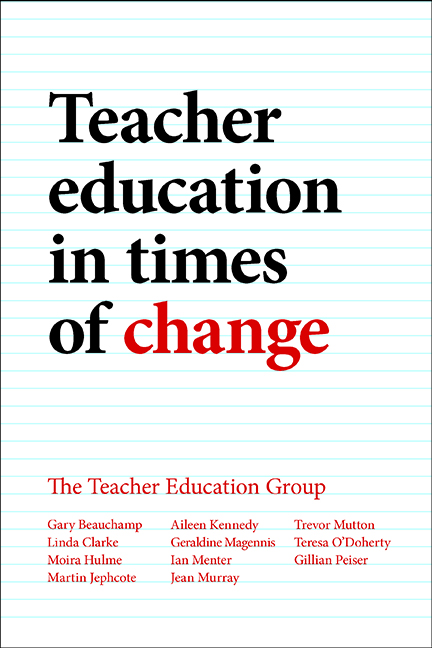Book contents
twelve - Partnership in teacher education
Published online by Cambridge University Press: 23 August 2022
Summary
Introduction
Partnership in teacher education encompasses differing notions of collaborative working in a range of different contexts but most frequently designates the relationship between providers of initial teacher education (ITE) and the schools with which they work most closely, although similar partnerships might be in place involving schools and universities working together in relation to the continuing professional development (CPD) of teachers. Partnership working has been at the heart of teacher education, both in the United Kingdom (UK) and in many international contexts, for the last three decades but the way in which individual partnerships function can vary greatly, with the actual concept of ‘partnership’ itself being open to interpretation and the source of underlying tensions. These tensions, however, may not always be openly acknowledged. Teacher education has been identified by Cochran-Smith (2005b, p 3) and many others since as a ‘policy problem’, with partnership working, particularly in the UK, having been promoted by both policy makers and those responsible for programmes of initial teacher education as an integral part of what can be done to address this perceived problem. There is, however, less explicit acknowledgement of the potentially problematic nature of the concept of partnership itself. As early as 1984, Alexander was identifying some of the key issues and arguing that the dialogue of ‘professional partnership’ had been ‘difficult to promote’ not least because of differences in the models of professional learning favoured by schools and universities respectively. He concluded that ‘the comfortable language of ‘partnership’ conceals more intractable issues’ (1984, p 142).
It is the way that teacher education policy and practice has tried, over the years, to accommodate some of these ‘intractable issues’ that this chapter will seek to address by examining the way in which the notion of partnership has developed in light of the changing landscape of teacher education within the UK and Republic of Ireland (RoI).
This chapter begins by looking at the way in which teacher education policy has led to a particular rhetoric of partnership (‘the comfortable language’) and how this may be reflected in the practical arrangements for partnership working across the five jurisdictions under examination here.
- Type
- Chapter
- Information
- Teacher Education in Times of ChangeResponding to challenges across the UK and Ireland, pp. 201 - 216Publisher: Bristol University PressPrint publication year: 2015
- 1
- Cited by

